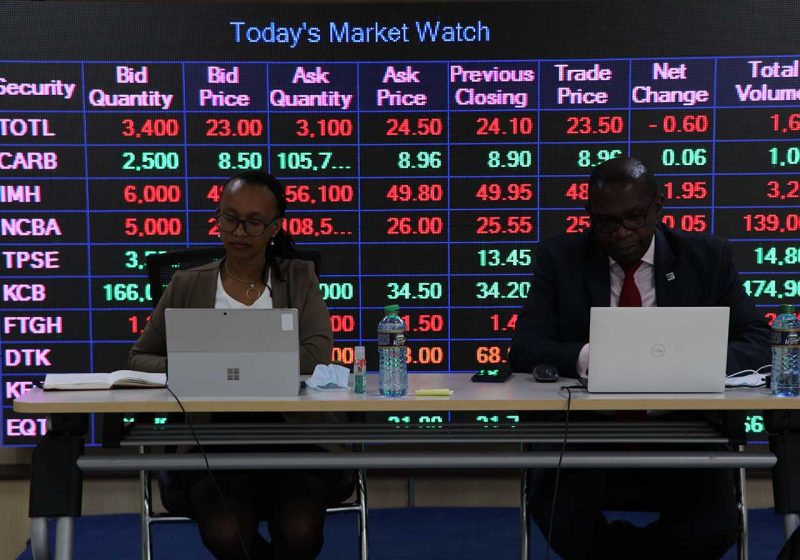KCA University students of Economics and Business Studies engaged in a virtual discussion with Geoffrey Odundo, Chief Executive Officer Nairobi Securities Exchange (NSE) on the role of securities exchange in the Kenyan economy. The session was part of KCA University industry engagement approach to enrich students learning experiences across all faculties.
Of concern to the student was how the insider trading occurs, measures put in place by NSE to avoid hacks, how companies establish share prices and value, and the fiscal weight of strong firms and how they can affect the economy.
NSE is an organized market for trading of stocks, bonds and other securities. NSE provides a platform where companies can raise capital for expansion purposes by selling and issuing securities (stocks and bonds).
Odundo took the students through the roles of NSE, its growth, security measures and how it impacts the economy. He so explained to students NSE current products and activities in the financial sector.
NSE were initially meant to provide trading facilities for stock brokers and traders to enable them to trade stocks.
In recent times, security exchange markets have become electronic networks that have advantages of speed and low cost of transactions and do not necessarily have to be a physical place. For a company to trade its stocks on a stock exchange, it must be listed in that exchange.
The securities traded on a stock exchange include shares issued by listed companies, unit trusts, derivatives, pooled investment products and bonds. The stock exchange therefore is a market that deals in the exchange of stocks issued by publicly quoted companies which are listed on its board as well as government securities.
In Kenya, the Nairobi Stock Exchange (NSE) is the only body that performs the functions of a stock market. Among many other objectives and roles, are promotion and enhancement of a culture of saving by providing alternative avenues for investment and assists in the transfer of these savings to investment in productive enterprises and quoted stocks.
The NSE also promotes higher standards of accounting, resource management and transparency in the management of business through the agency arrangements.

The NSE is one of the most important avenues for both new and growing companies to raise capital at lower cost through Initial Public Offers (IPO) and other offers and also for government to divest from public corporations through privatization. Initial public offering is the process by which a private company can go public by sale of its stocks to general public. This in turn allows greater growth and increase in the supply of assets available for long-term investment.

The NSE maintains the stock indexes which are the indicators of the general trend in the economy. It also regulates the stock price fluctuations. At the stock exchange, shares rise and fall depending, largely, on market forces. Share prices tend to rise or remain stable when companies and the economy in general show sign of stability. The movement of share prices can be an indicator of the general trend in the economy.

